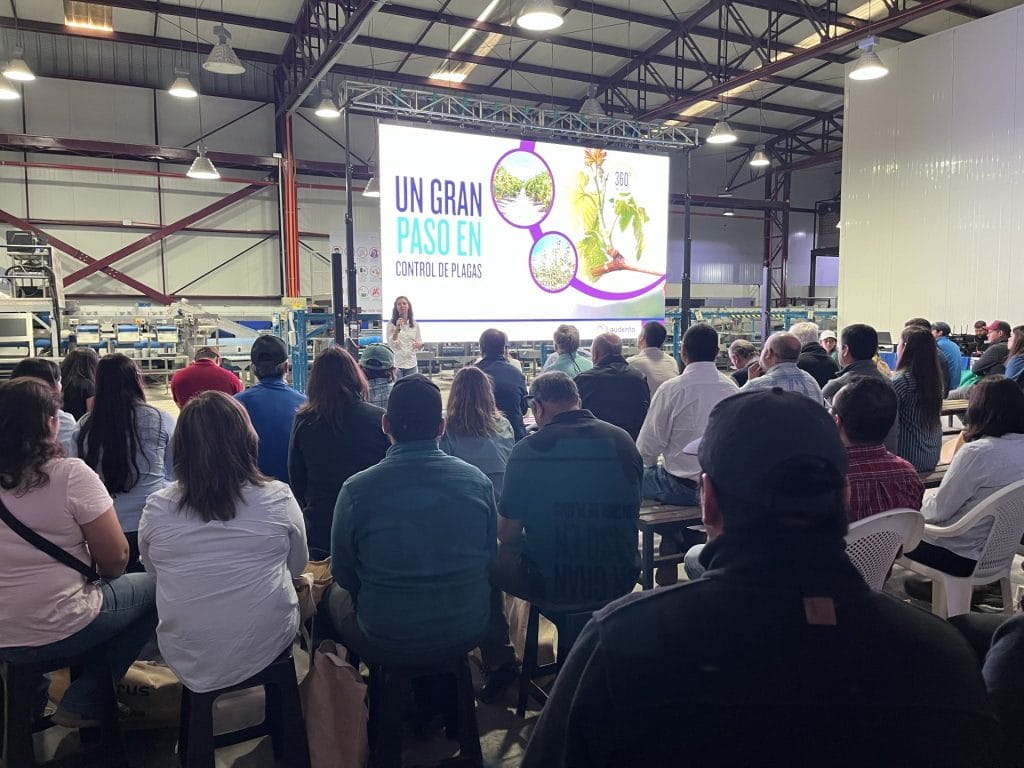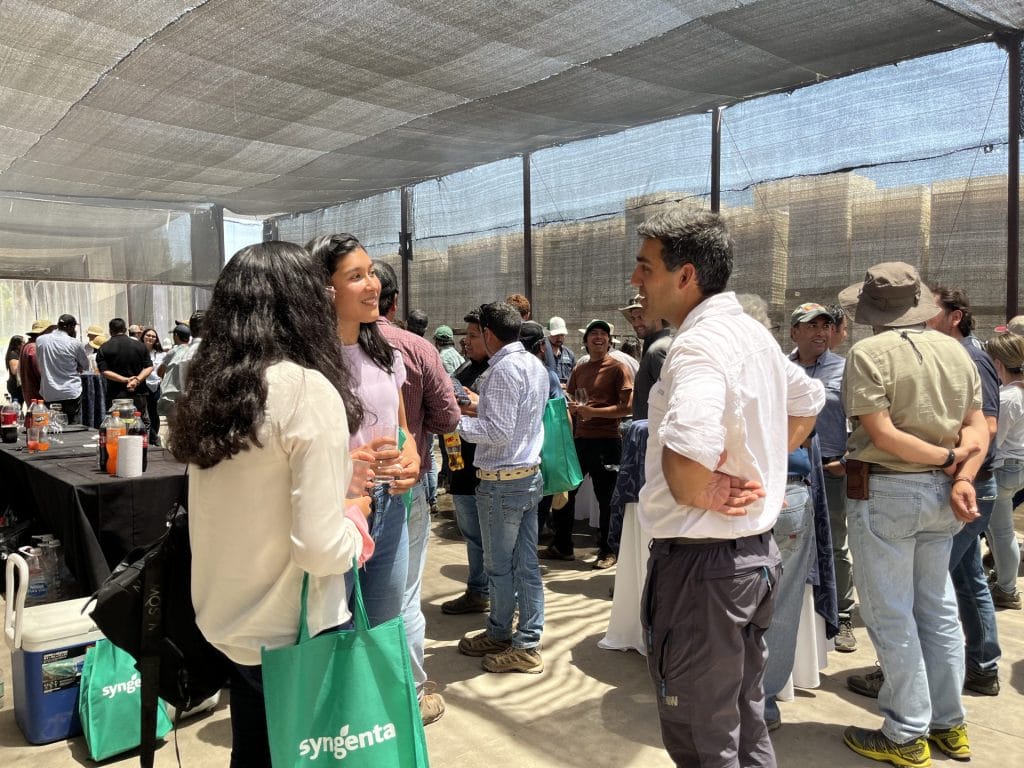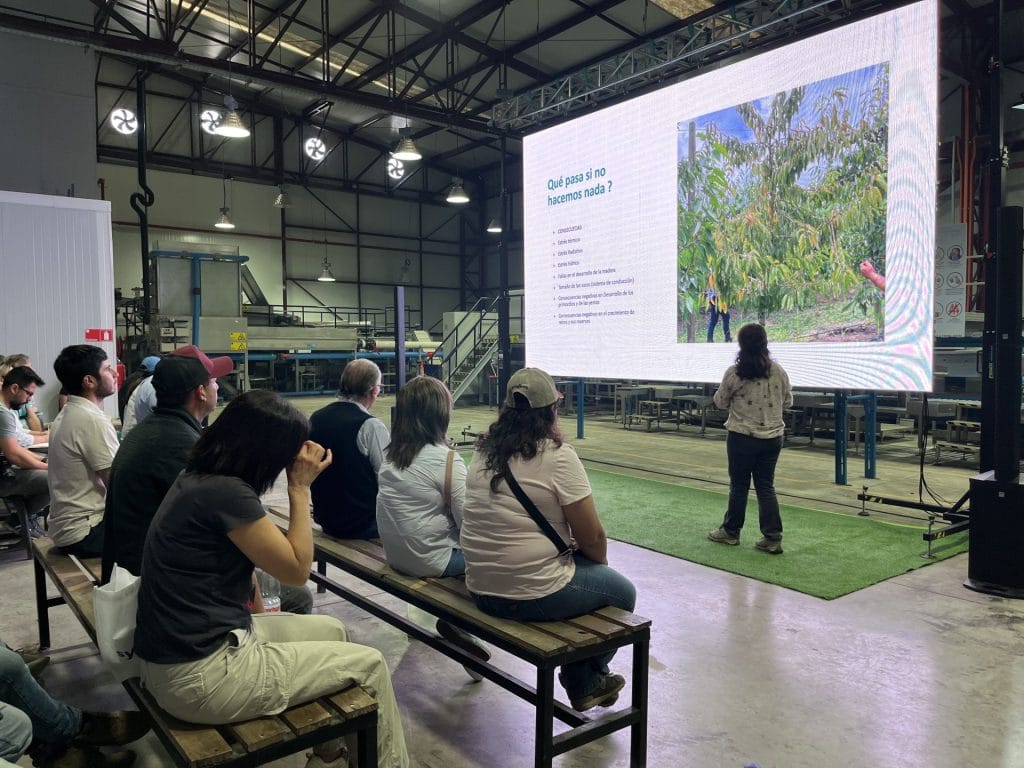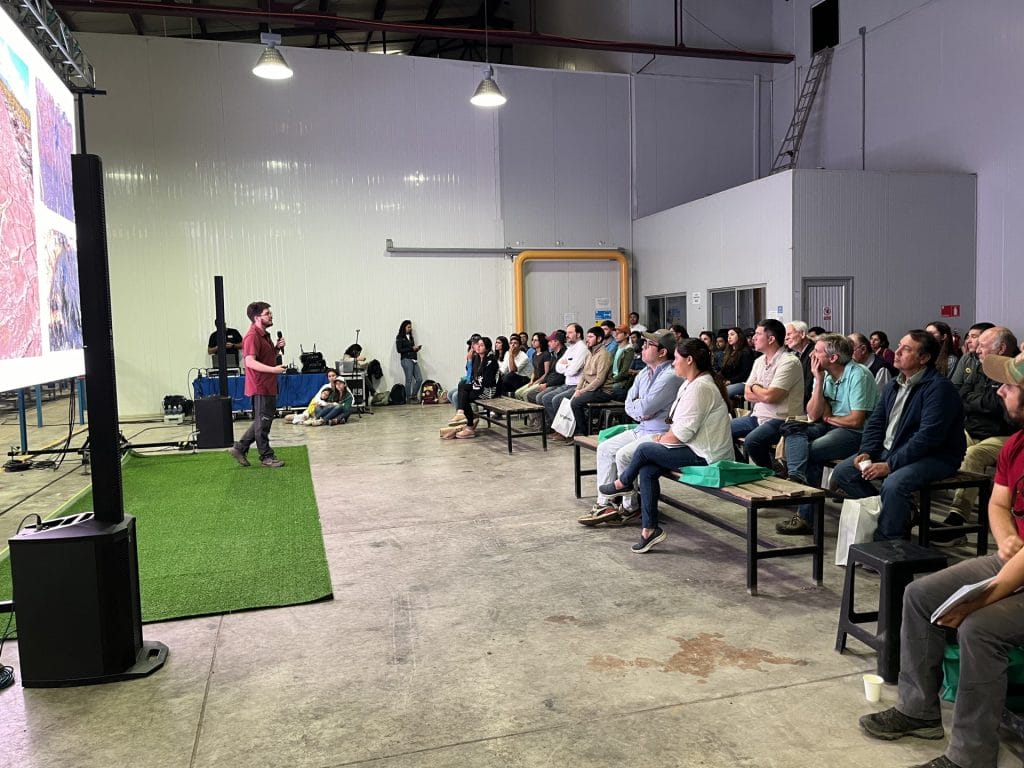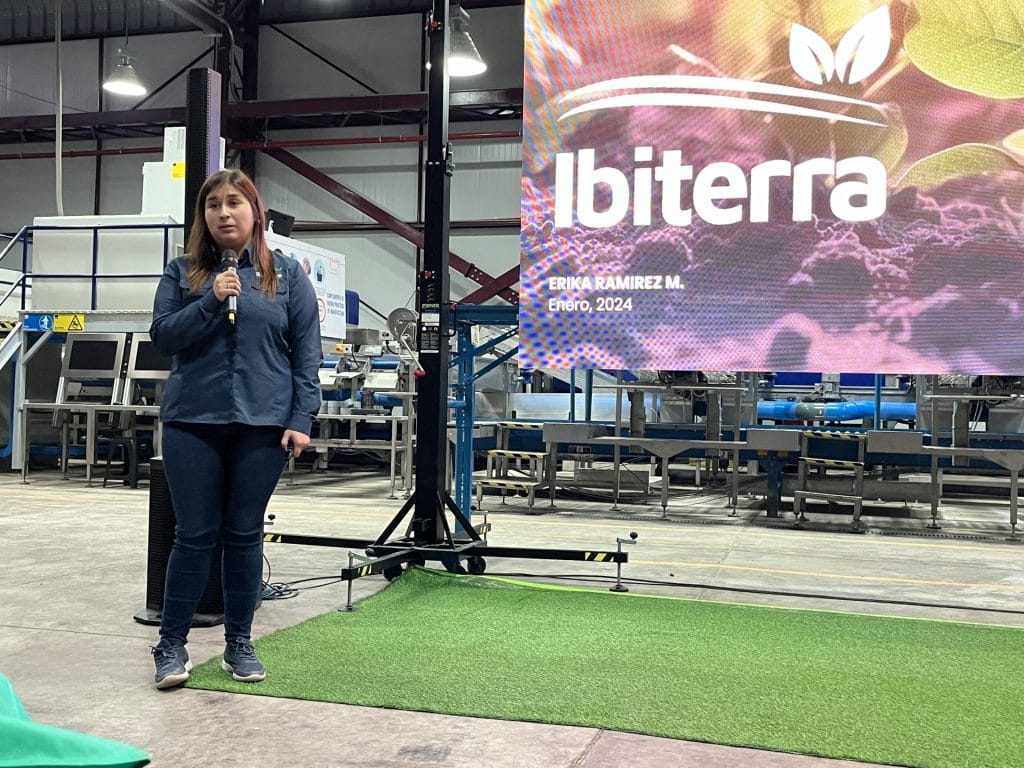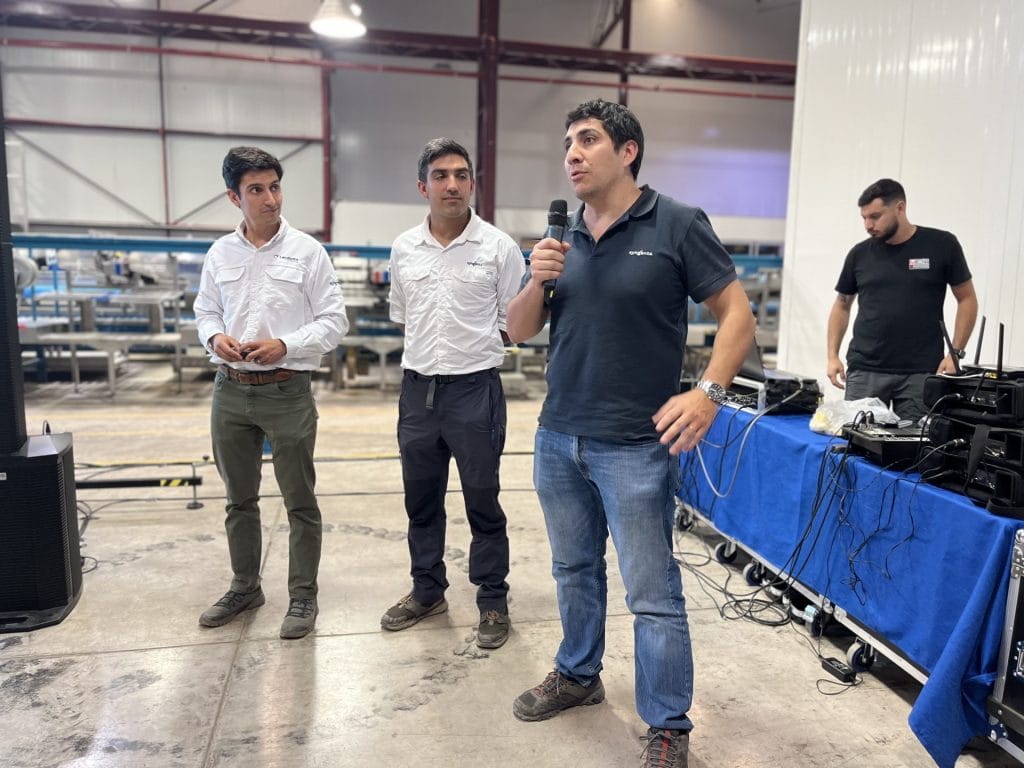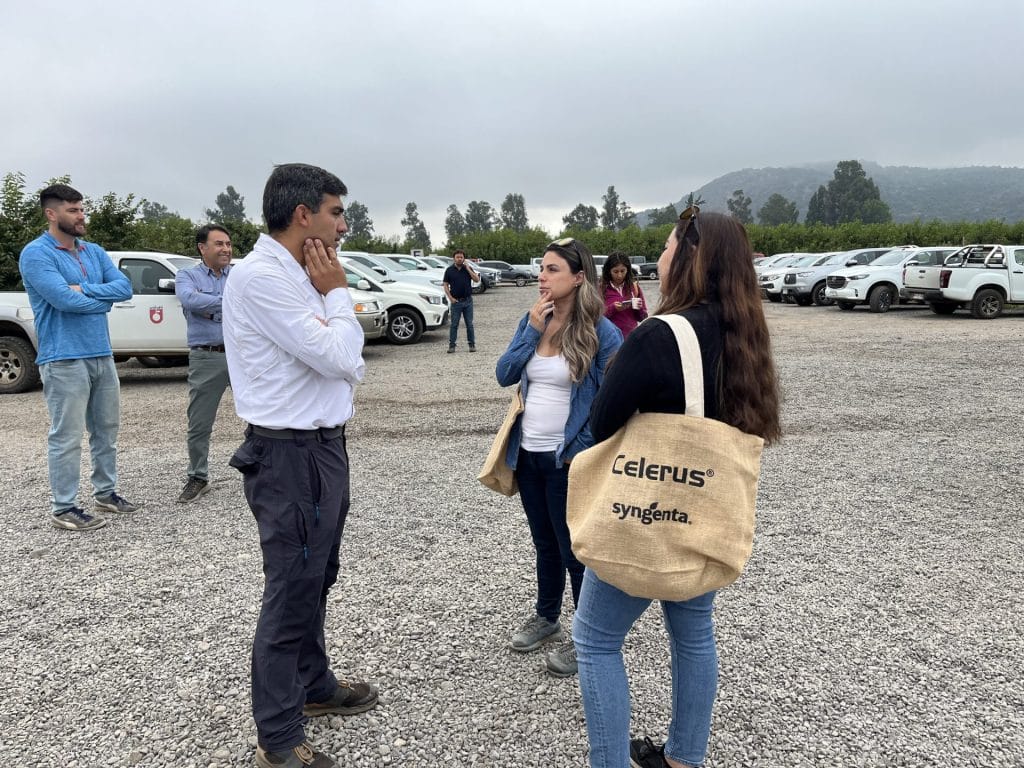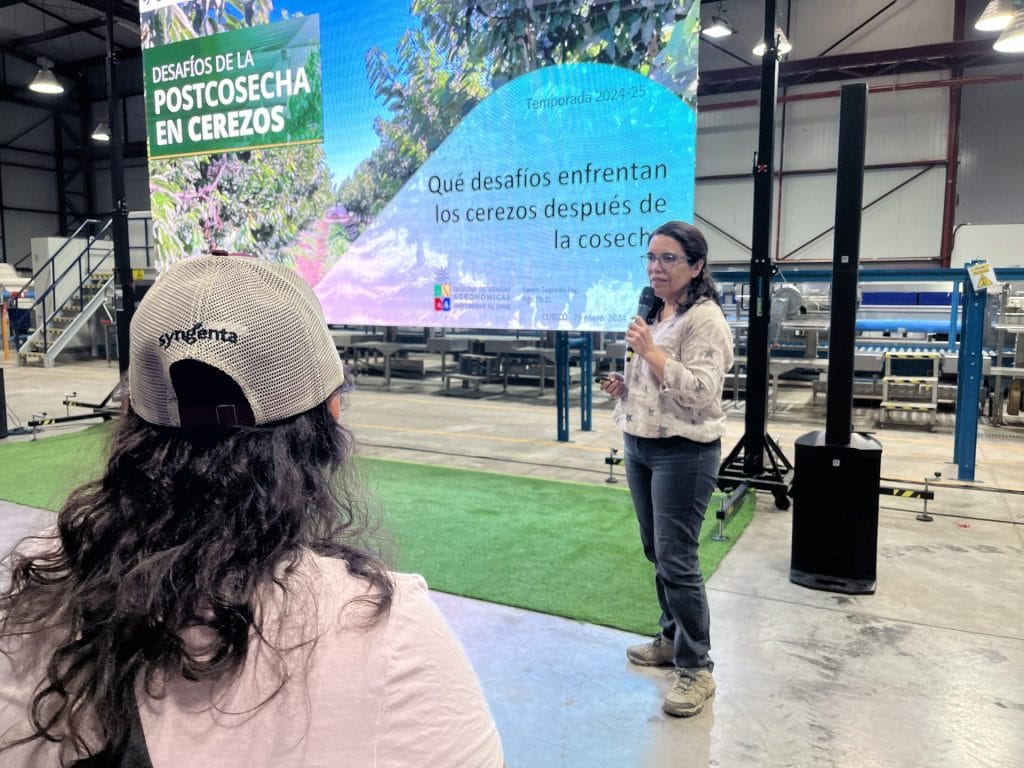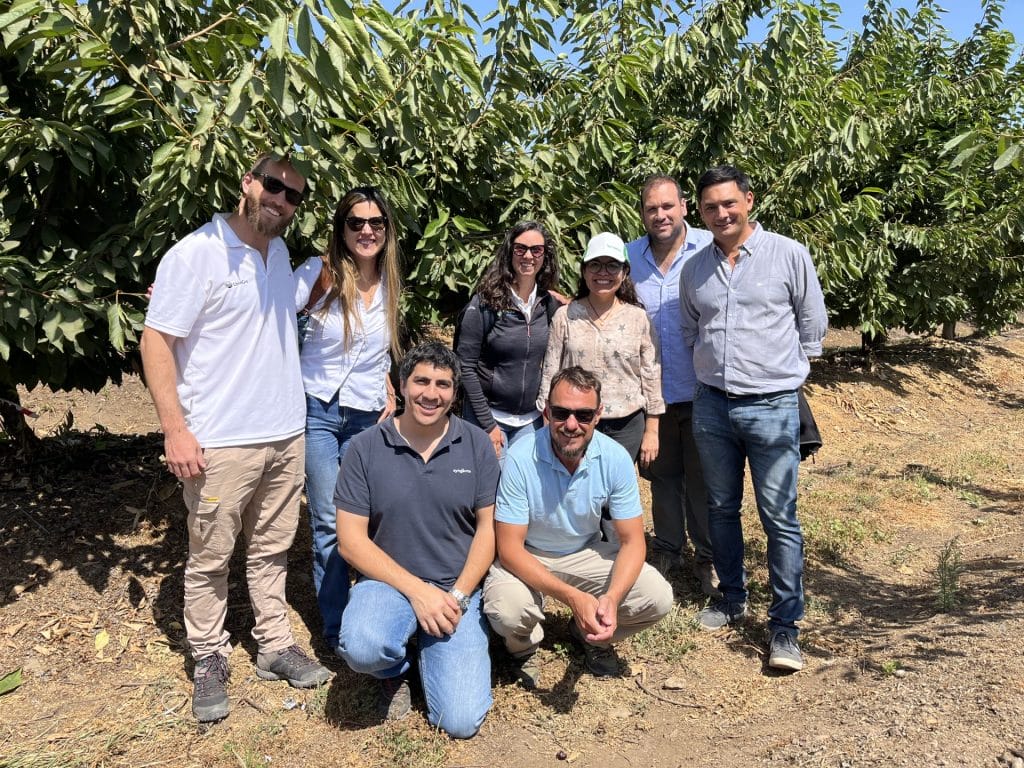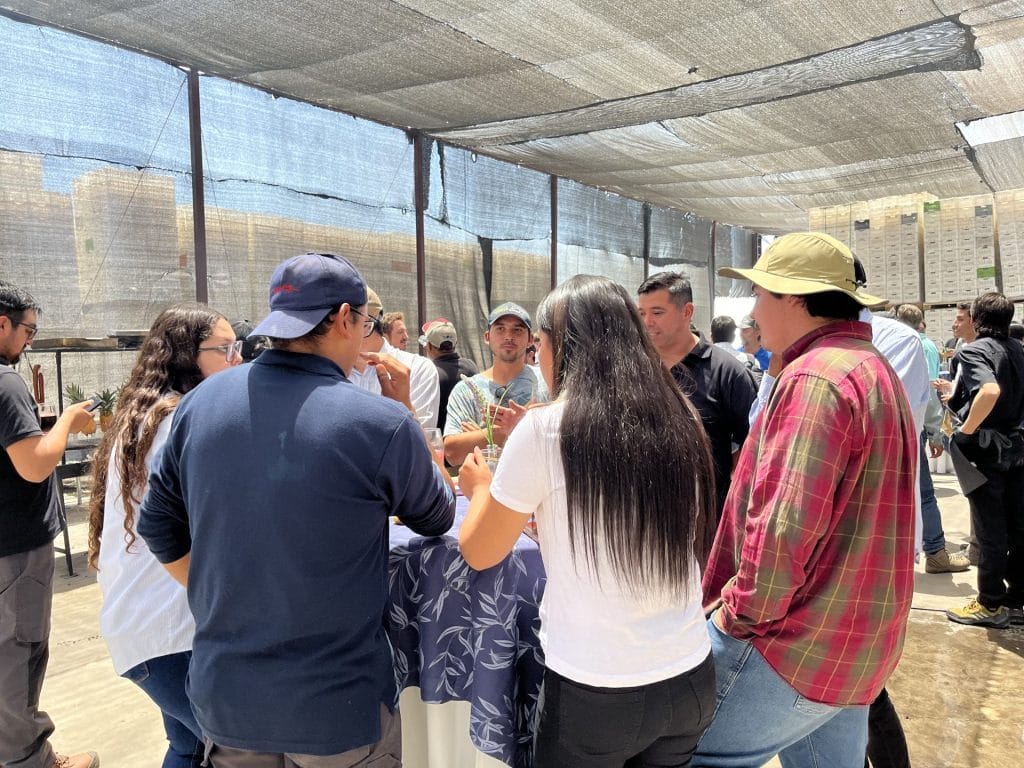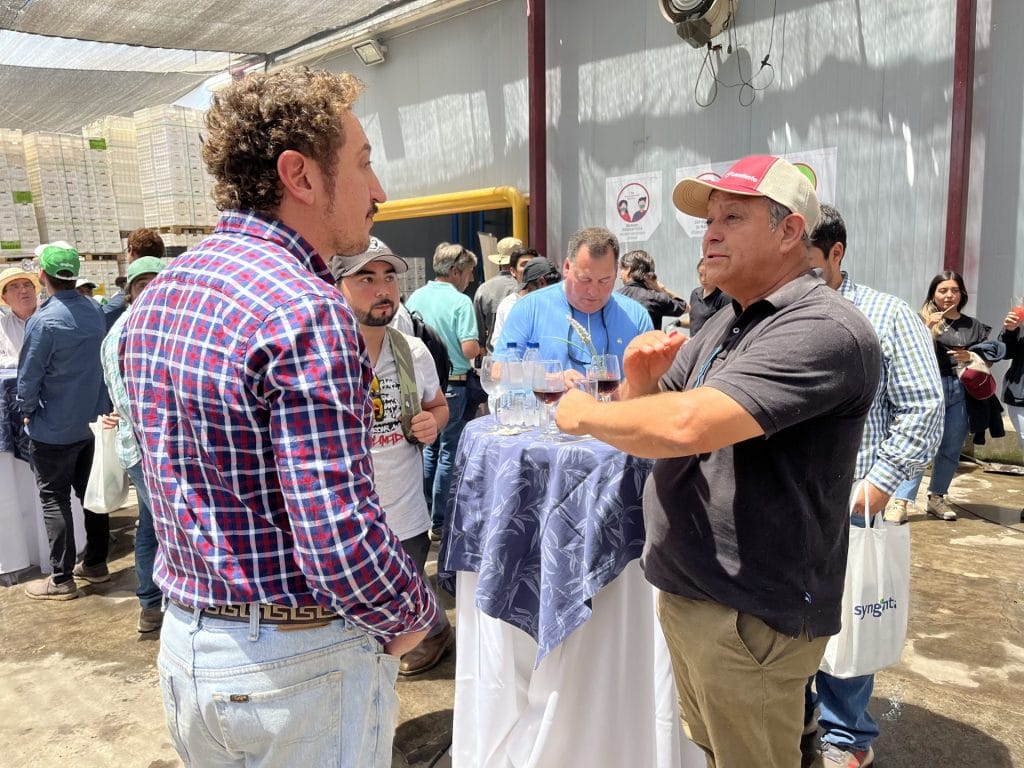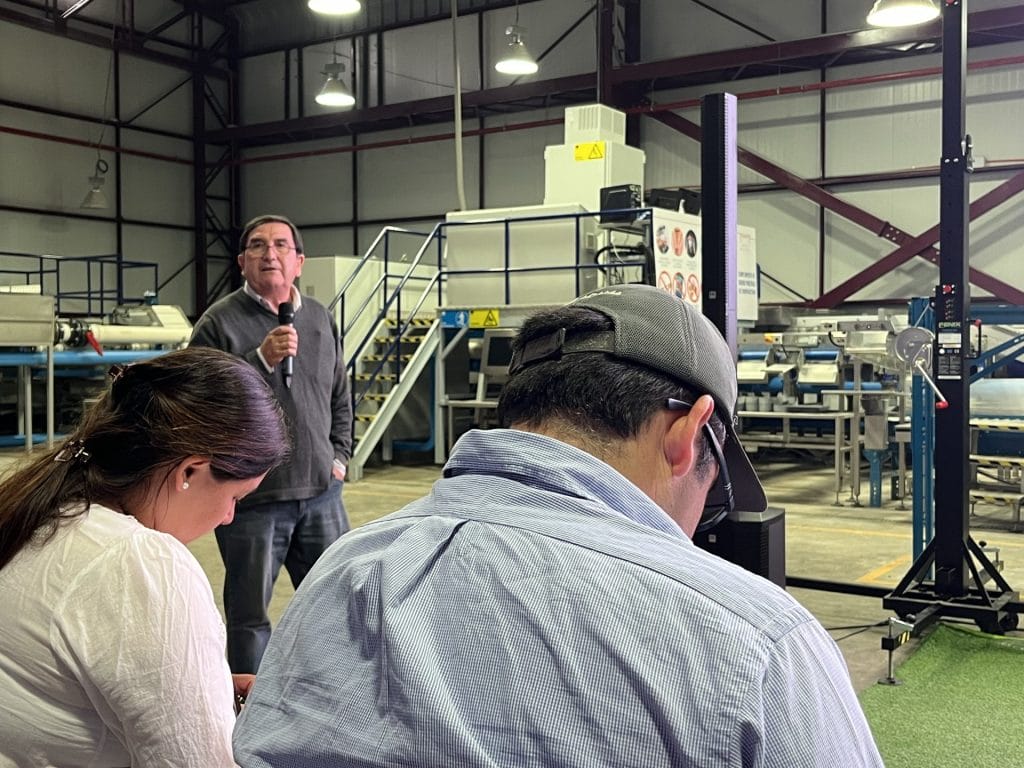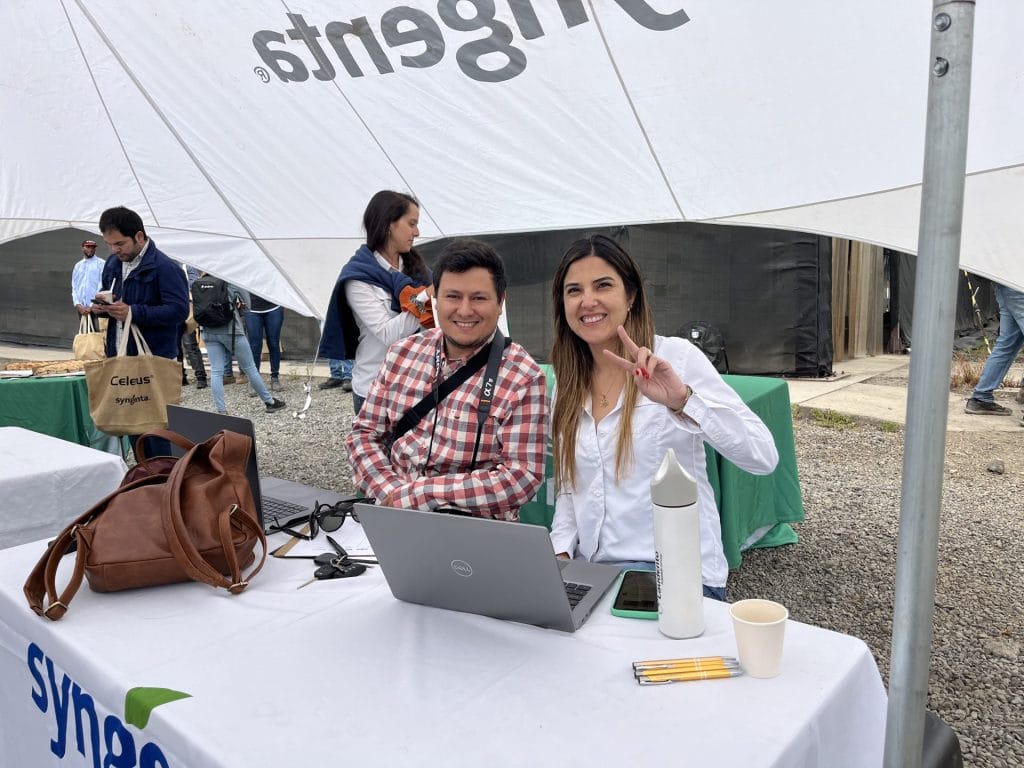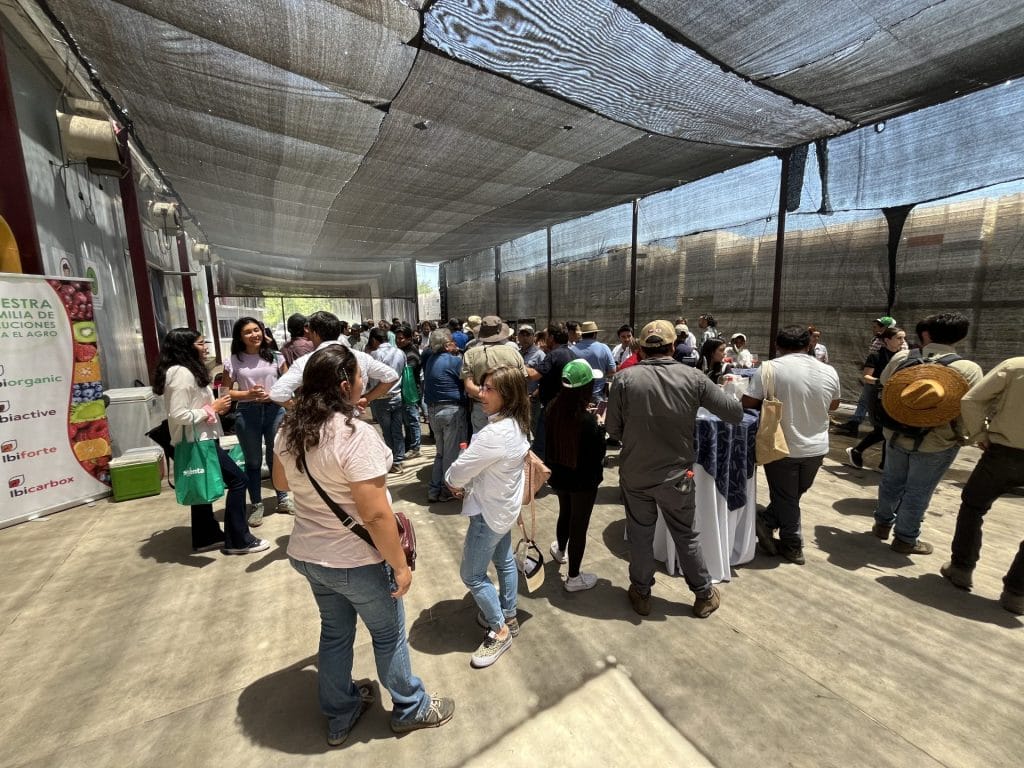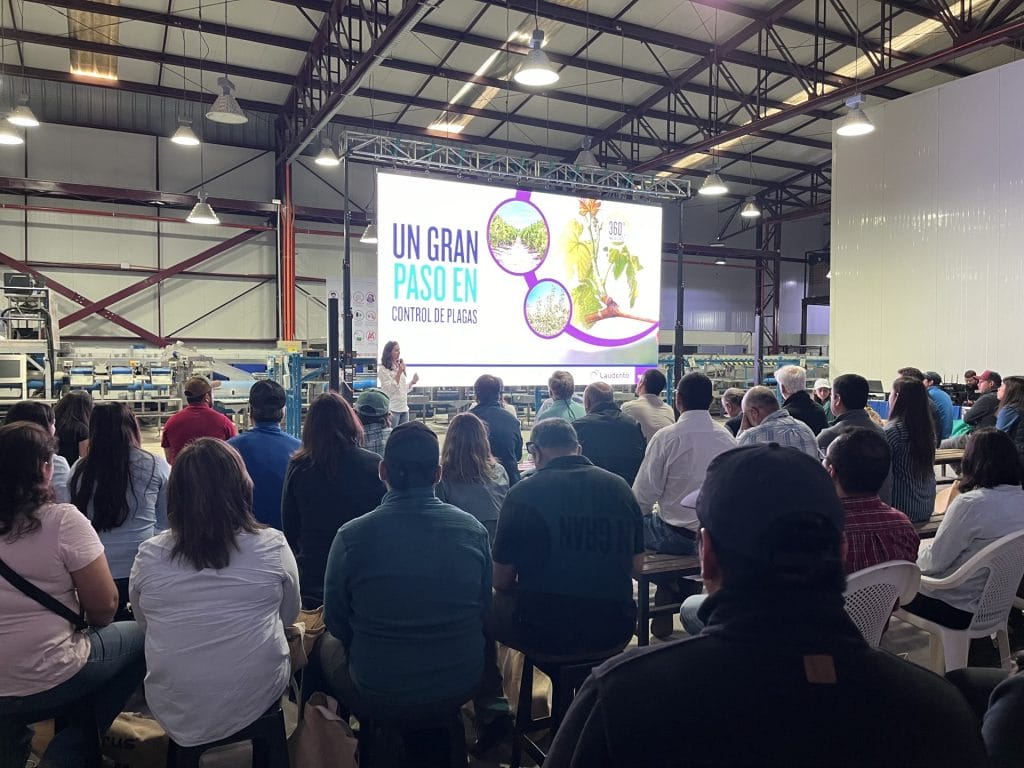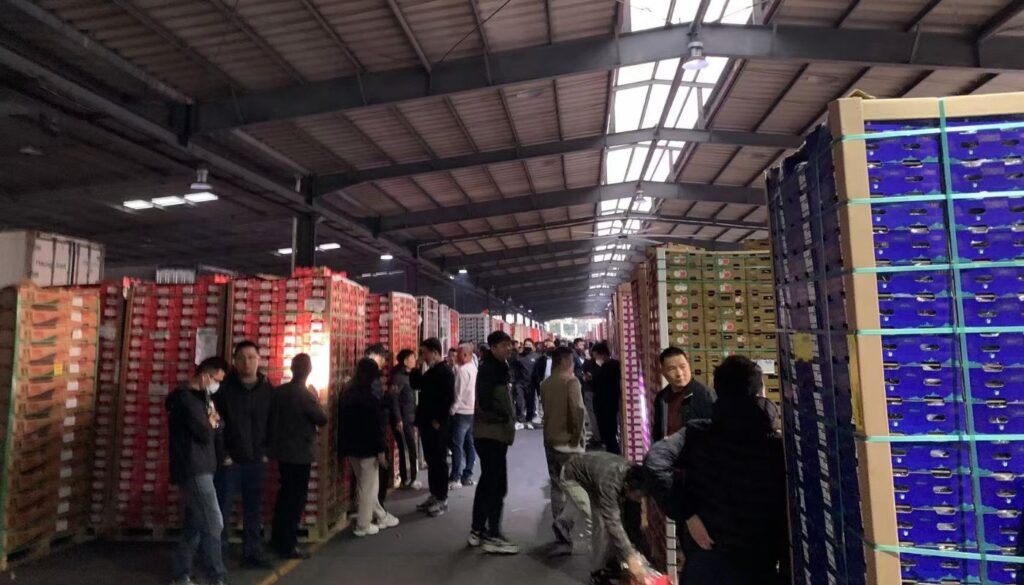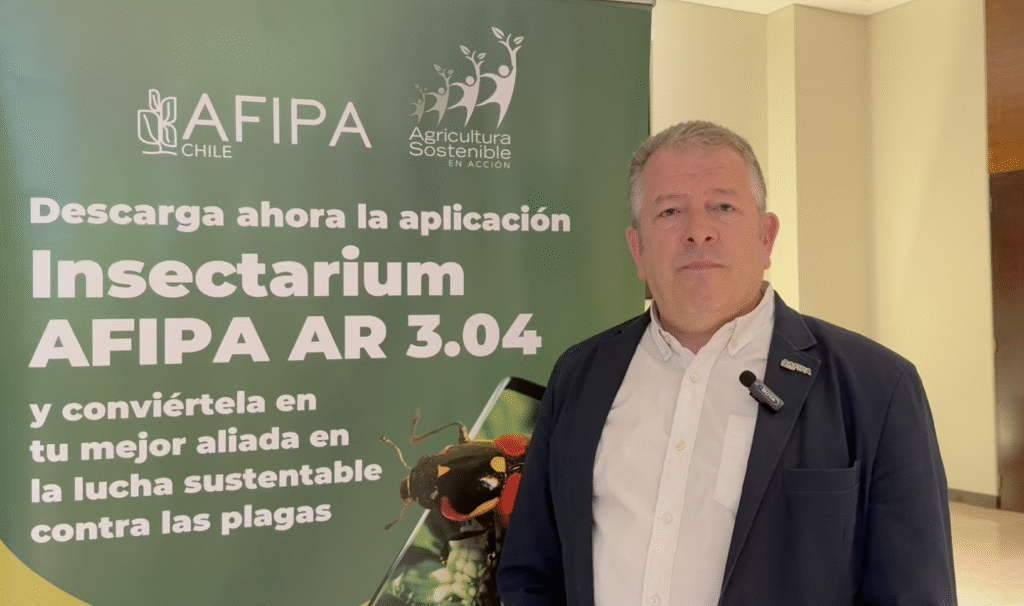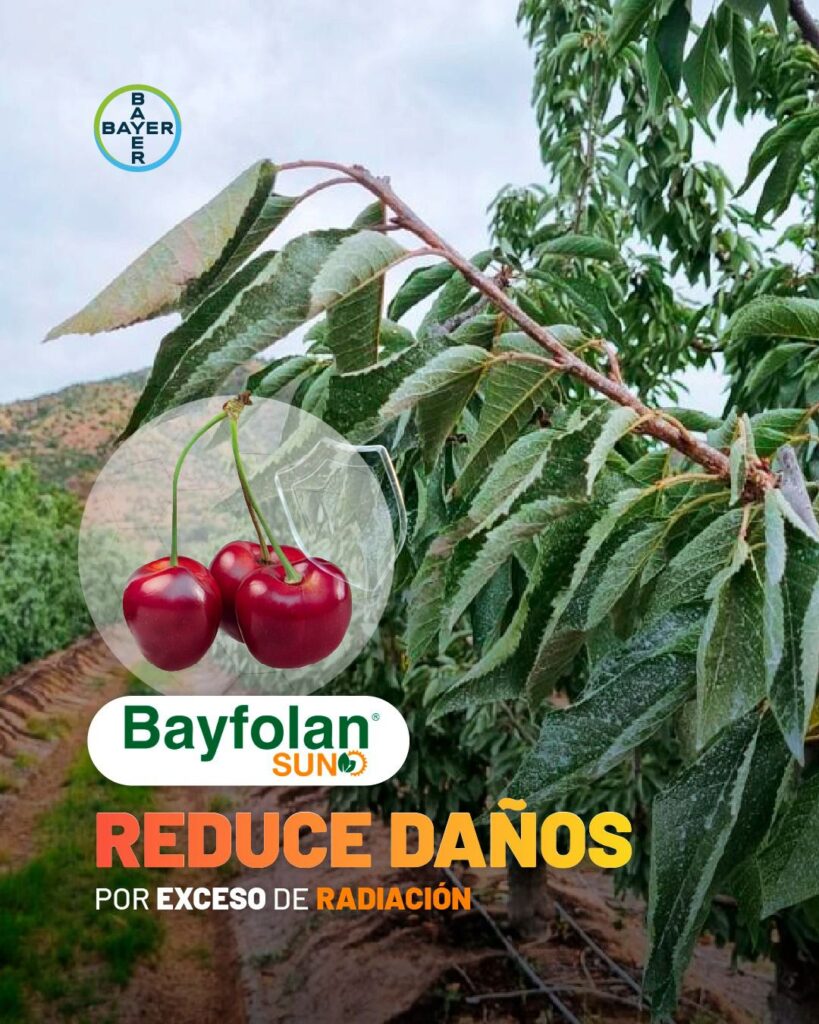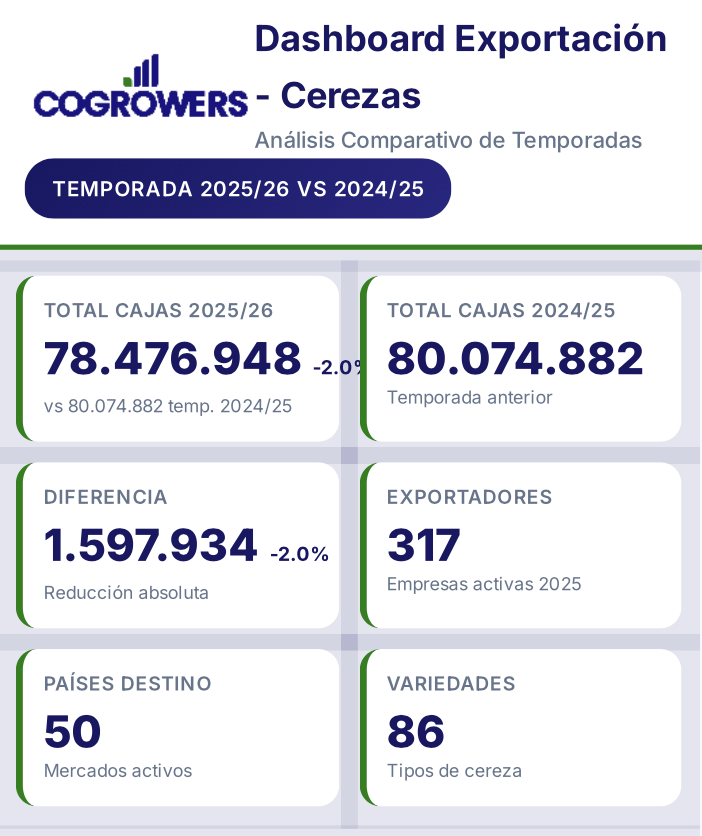In a day full of learning and knowledge exchange, Syngenta held its first Field Day of the year focused on cherries, with special attention to post-harvest practices. The event took place at the facilities of Exportadora Yucay de Agrícola Las Perdices, bringing together prominent professionals and farmers interested in optimizing their processes and was attended by around 120 people.
Agustín Castro, Syngenta AgroFriend Zone in Curicó, expressed his satisfaction with the event. During the day, innovative strategies and solutions were presented to mitigate post-harvest stress, highlighting Acadian Plan Health products (Stimplex and Acadian Organic), as well as the acaricide Laudento, with an astonishing residuality of approximately 35 days.
“Very happy to carry out our first field day focused on cherries, specifically on post-harvest, where we showed different strategies and solutions that we are using to mitigate stress.“Castro said.
The agroAmigo zone also highlighted the strategic alliances with Ibiterra and MyConativa, promoting their products Ibiactive Sun and Yegun Nativa.
In turn, the event included the participation of the professor Karen Sagredo, agricultural engineer and professor at the University of Chile, who gave talks focused on providing tips for farmers to manage their post-harvest efficiently, minimizing the negative impact on future seasons, considering current weather conditions.
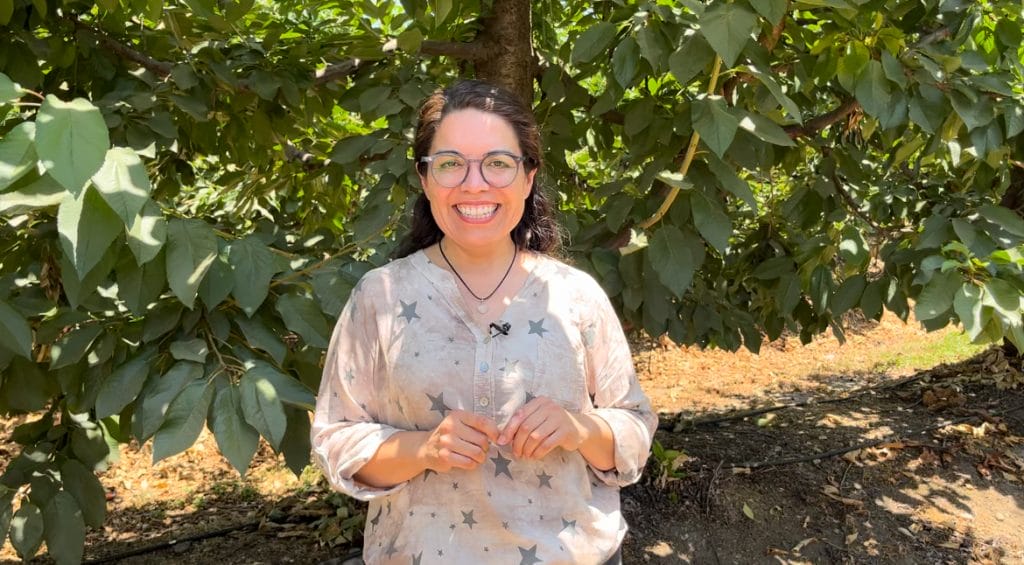
“All events organized to raise awareness among farmers about the effects of climate change and the fact that we are in a situation of risk for agriculture are welcome. Finally, farmers become aware and begin to take better care of their resources and act more in advance, not considering these events as sporadic, because climate change is a permanent condition, drought, thermal stress and radiation,” began by saying the professor from the University of Chile.
“In these types of meetings, these types of situations are analyzed and that is undoubtedly enriching because it contributes to a greater knowledge of farmers and how they interrelate with the industry, which ultimately means producing quality fruit and ensuring that the crop is sustainable,” added Sagredo.
The professor also had words to refer to what producers should pay more attention to during the post-harvest period of cherry trees.
“I think they should worry about the foliage and not think about working to put in reserves today, because today, the foliage has to work well, the wood has to develop, cycles have to be completed, the buds have to develop and the primordia too, to reach their adequate states. There is still a long way to go before the entry into dormancy, autumn was moved to April, probably May, and that is also something we should take into consideration and not start forcing these cycles when the climatic temperatures require foliage and sometimes by forcing the entry into dormancy, we end up stressing the plants more.”.
For its partMauricio Ortiz, director of the Center for Advanced Studies in Fruit Growing (CEAF), who was also part of the presentations, highlighted the opportunity to showcase the center's contributions and successful collaborations with companies such as Acadian. Ortiz highlighted the importance of events like this to support decision-making in agriculture.
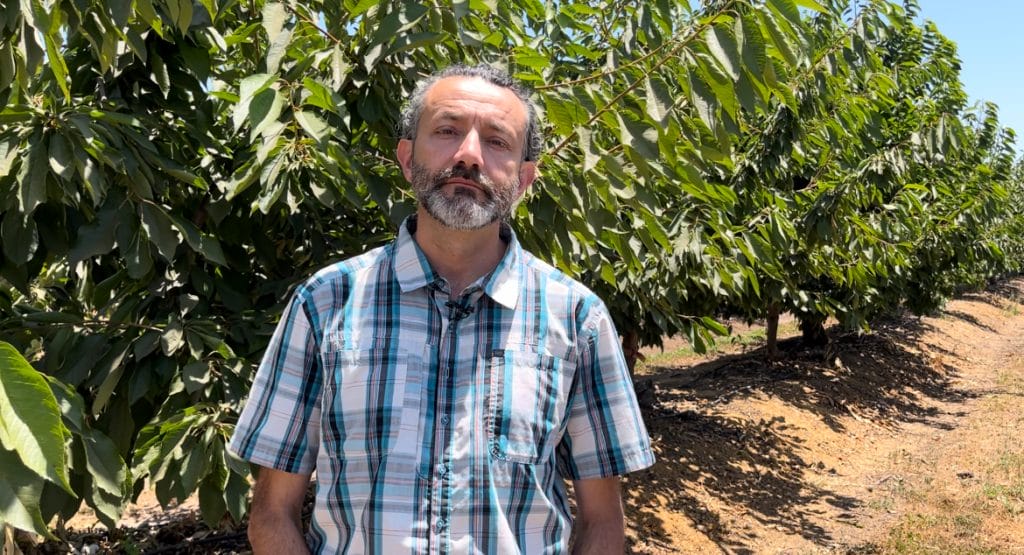
“This is a wonderful opportunity, with the attendance at this event and the fact that people stayed attentive to all the talks, throughout the entire period that the activity lasted, I think it is excellent, which also denotes the quality of the exhibitors and also the interest of farmers and producers to learn about how to manage their gardens during this summer, in the post-harvest season,” said Mauricio Ortiz.
Finally, Felipe Leiva, manager of Las Perdices Agricultural Company, highlighted the importance of the field day as a successful collaboration between the chemical and agricultural companies, noting that,“The Syngenta field day is very important for us, as it is a collaboration between the chemical company and us, the agricultural company, and thanks to this we get the results we obtain with cherries, and we can also test new products and innovate.”
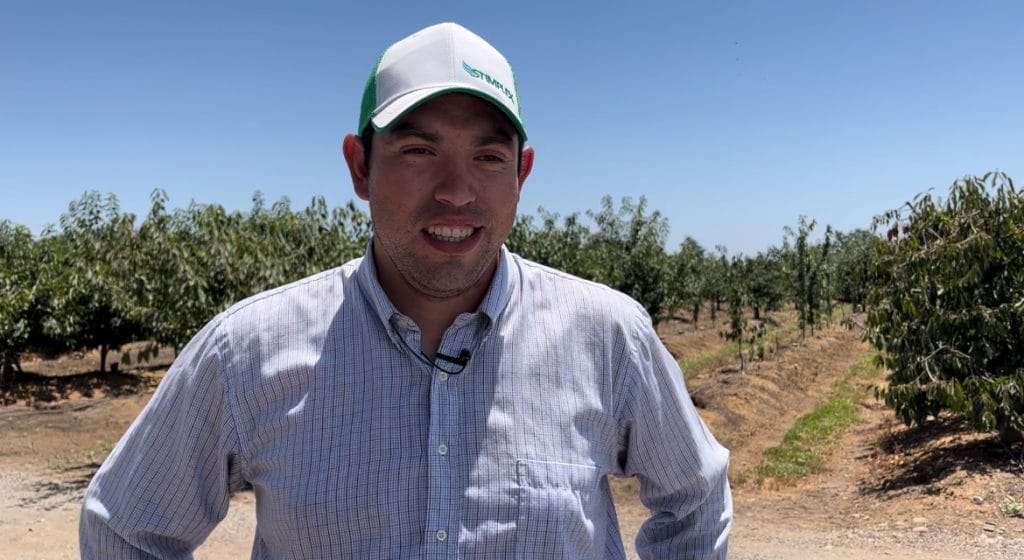
The event proved to be an enriching space for the agricultural community, strengthening collaboration between Syngenta, farmers and other key stakeholders, with the common goal of improving post-harvest practices and facing climate challenges in a sustainable way.
